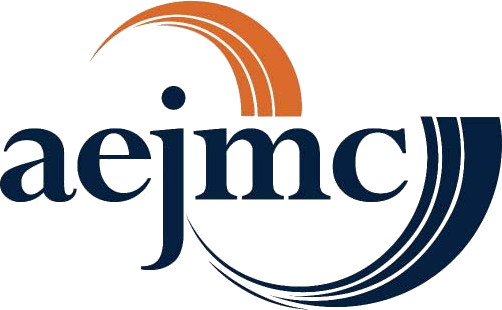October 15, 2015, added a new chapter to AEJMC’s history: Scholars, professionals, students and special guests descended on the School of Communications at Pontificia Universidad Católica de Chile in Santiago for AEJMC’s first international meeting in this region of Latin America. The three-day, tri-lingual regional conference continued some of AEJMC’s finest traditions and established new traditions for future regional conferences around the world.
In addition to 10 research paper sessions, including a scholar-to-scholar session, there were 11 thought-provoking panels that addressed issues of interest and concern across our field, including journalism, public relations, advertising, teaching, publishing, administration, news literacy, social media, politics and law. One particularly provocative panel addressed the “Impact of the Right to be Forgotten on the Practice and Meaning of Journalism.” Two special workshops on investigative journalism were organized by Teresa Correa of the Universidad Diego Portales. A third special workshop moderated by Sebastián Valenzuela of Pontificia Universidad Católica de Chile focused on mobile and wearable news and virtual reality in the rapidly changing media landscape.
The international regional conference opened with welcomes from conference co-chairs Paula Poindexter, 2013-14 AEJMC president, Texas at Austin, and Ingrid Bachmann, Pontificia Universidad Católica de Chile. Poindexter told conference attendees: “With the start of the AEJMC International Regional Conference in Santiago, we have just added an important new chapter to AEJMC’s 103-year-old storied history.”
Opening session greetings were extended by Ignacio Sánchez, president of Pontificia Universidad Católica de Chile, Dean of Communications Silvia Pellegrini and AEJMC Immediate Past President Elizabeth Toth, Maryland.
Keynote conference speaker Pablo J. Boczkowski, professor and director of the Program in Leadership for Creative Enterprises, Northwestern, gave a timely and engaging presentation: “The News Gap: When the Information Preferences of the Media and the Public Diverge.”
The opening reception and wine tasting provided an opportunity to take in one of the most beautiful and important historic sites in Santiago: Castillo Hidalgo, which was built in 1816 at the top of the Santa Lucia hill. Attendees tasted some of Chile’s best wines and sampled an array of delicious Chilean foods at the reception; another highlight was a drawing for 13 copies of Héctor Tobar’s book Deep Down Dark: The Untold Stories of 33 Men Buried in a Chilean Mine, and the Miracle That Set Them Free, the 2015 AEJMC-Knudson Latin American Prize Winner.
Winners of AEJMC’s top conference research paper awards were announced by AEJMC President-elect Paul Voakes during the closing reception sponsored by David Perlmutter, dean of the College of Media & Communication, Texas Tech. Certificates and cash prizes of $300, $200 and $100 were given to the first-, second- and third-place winners of the top faculty and student papers. One award was reserved for the AEJMC Latin America Regional Conference Top Paper Award, recognizing the paper that most contributed to understanding journalism and communication in Latin America, and was won by Summer D. Harlow, Florida State, for her paper “Beyond Representation: Exploring Participation in and through Technology at an Alternative Newspaper in El Salvador.”
The recipient of the First-Place Top Faculty Paper was “Televisión y ‘Engagement’: Visión Corporativa, Contenidos y Valoración de las Audiencias. Análisis del Caso RCN Televisión” [Television and Engagement: Corporate Vision, Content and Audience Valorization. A Case Analysis of RCN Television] written by Manuel González, Germán Arango, Enrique Uribe and Sergio Roncallo, Universidad de La Sabana (Colombia).
The First-Place Top Student Paper was awarded to Carmina Rodríguez, University of Amsterdam (The Netherlands) for her paper titled, “The Social Sharing of Emotion (SSE) in LiveJournal: Assessing the Role of Non-verbal Features.”
The impact of AEJMC’s Santiago international regional conference extends far beyond the 165 scholars, professionals, students and invited guests at the conference. With attendees from Mexico, El Salvador, Panama, Colombia, Ecuador, Peru, Brazil, Uruguay, Argentina, Chile, Puerto Rico, the United States, Spain and The Netherlands, the conference not only established AEJMC as an innovative player on the international stage, it built bridges to Latin America by introducing AEJMC to scholars in Latin America who had never come in contact with AEJMC, its members, leadership, or the editor of Journalism & Mass Com munication Quarterly, who participated on the “Meet the Editors” panel with editors from Cuadernos.Info and Comunicar. Plus, the research presented at the conference will have a broader audience because the editors of Cuadernos.Info published five of the conference research papers in the journal’s December 2015 issue.
Twitter also helped extend the conference’s impact. Journalism and communication scholars, professionals and students were able to follow the conference via 333 original tweets in Spanish, English and Portuguese using the official hashtag, #aejmcSCL. Summer Harlow’s final tweet no doubt captured what many were thinking as AEJMC’s International Regional Conference in Santiago came to an end: “It was a hit! Fue un éxito!”
